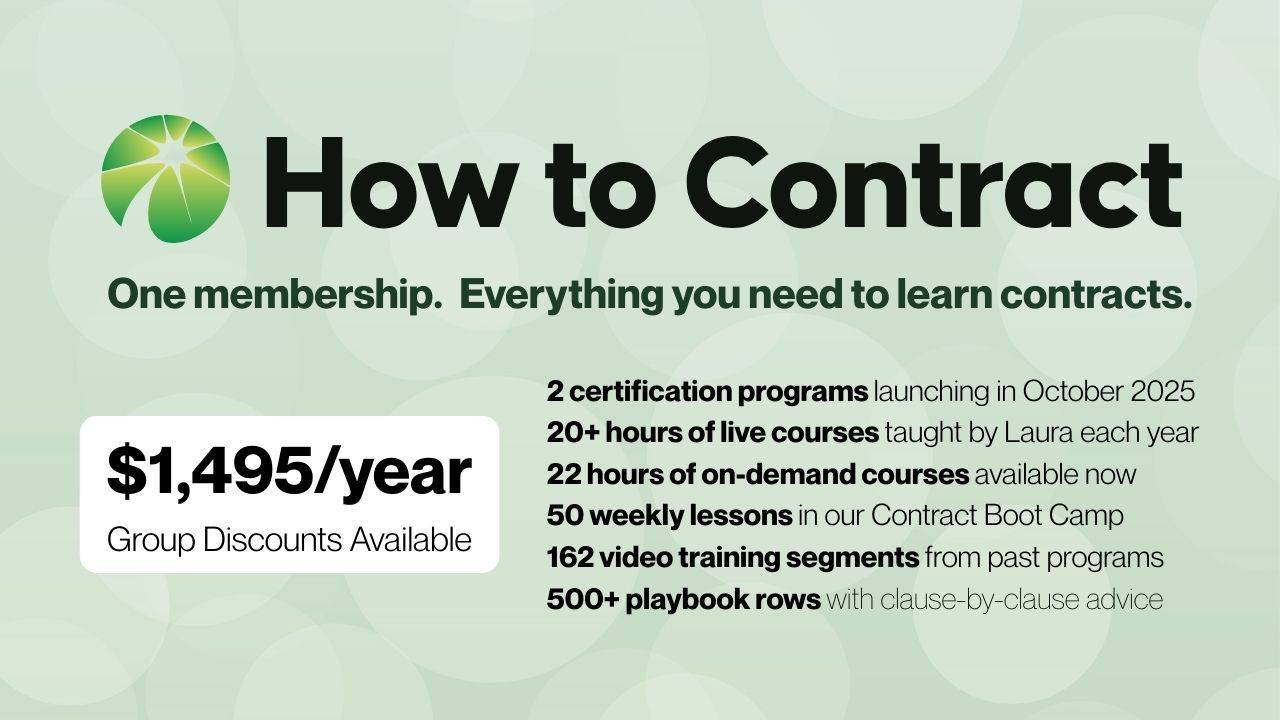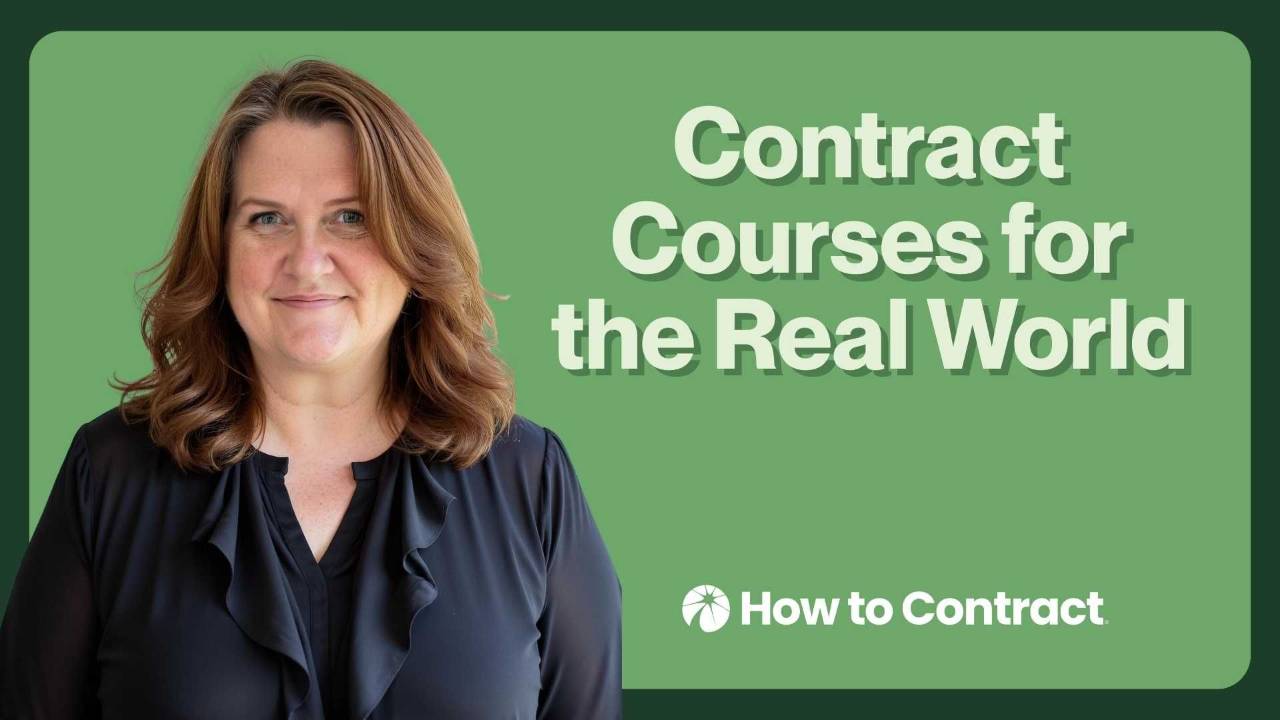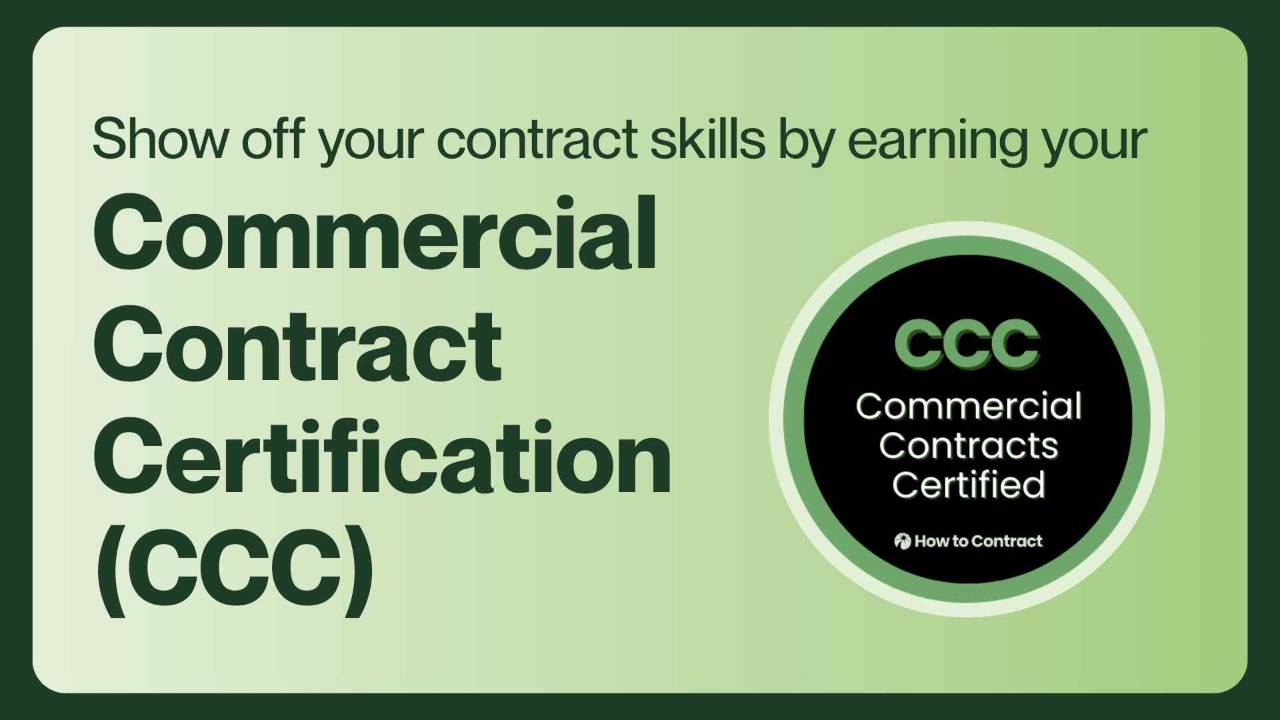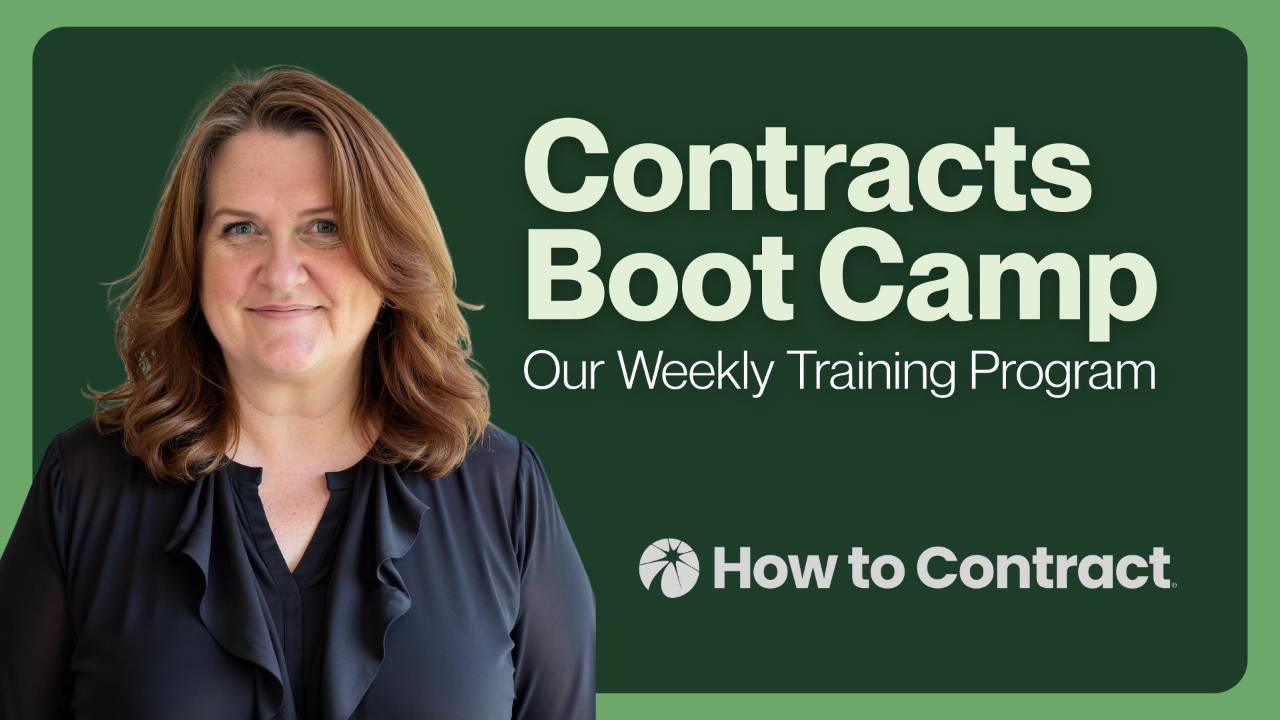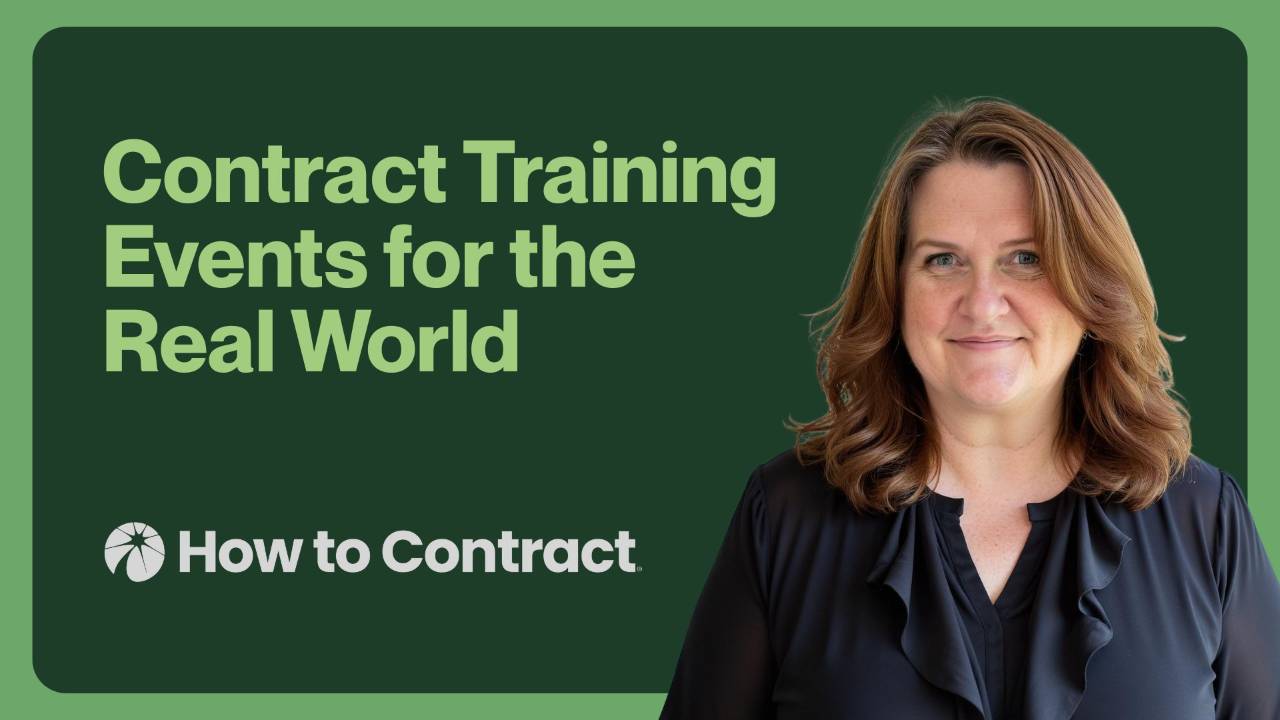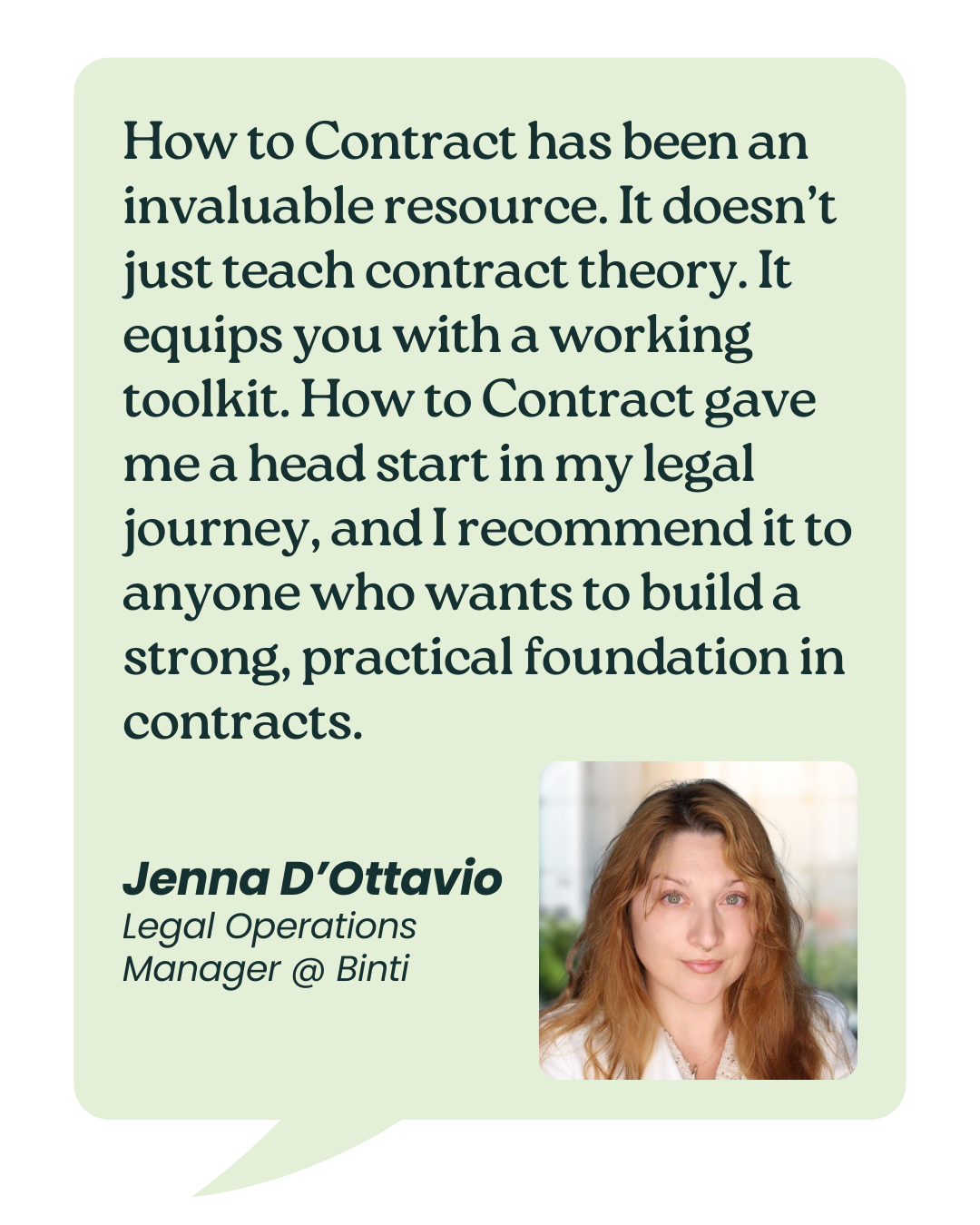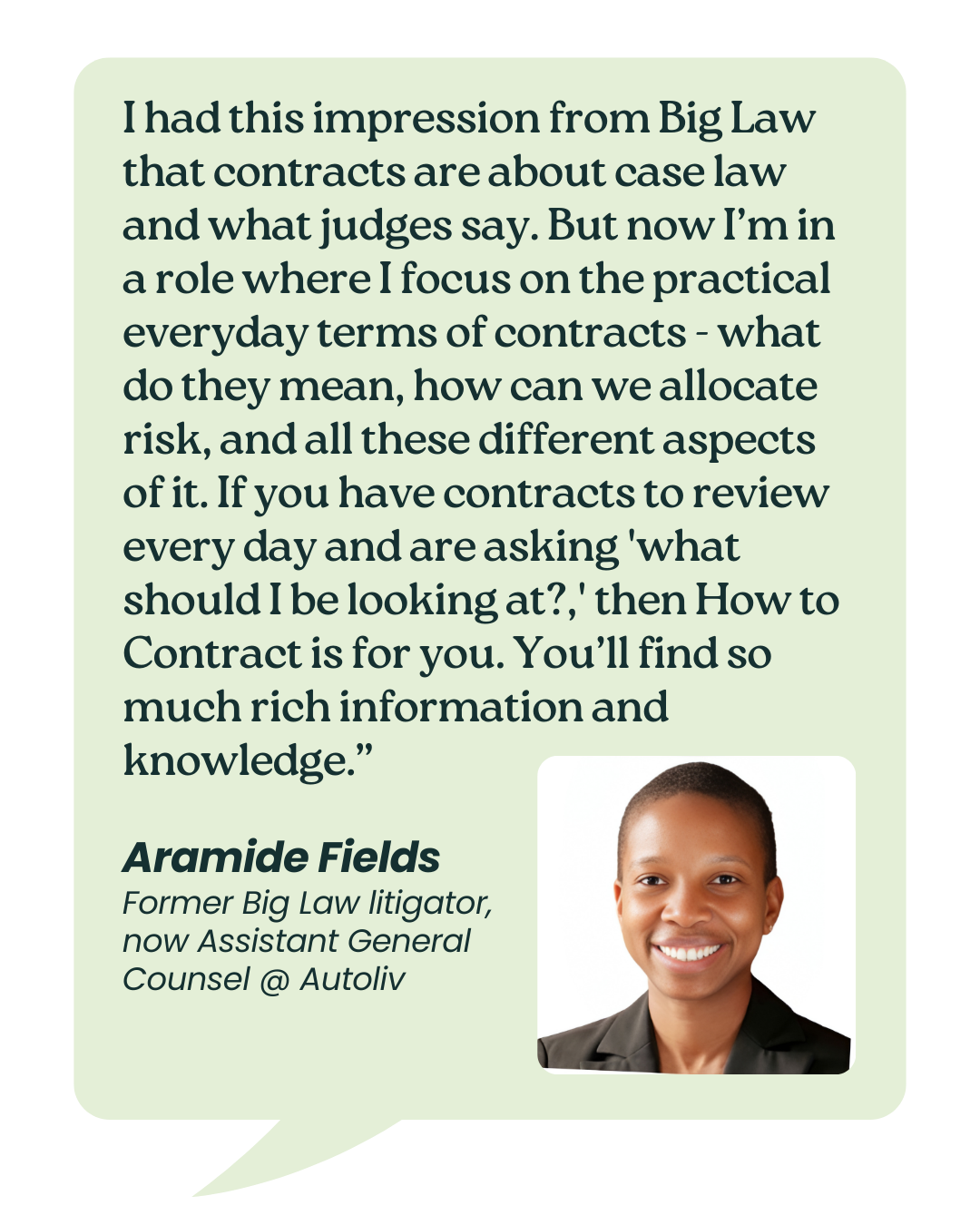
How I Contract: Insights from Smrithi Mohan, General Counsel SmugMug and Flickr
We interviewed Smrithi Mohan, the General Counsel at SmugMug and Flickr. Smrithi was previously the Head of Global Innovation and Intellectual Property at Dun & Bradstreet, and the Head of Legal for Dun & Bradstreet - India.
This interview is part of the How I Contract interview series designed to offer various perspectives from experienced lawyers and contract professionals on what works in contracts in the real world.
The Biggest Challenges of Starting a Career in Contracts
What was your biggest challenge when you started working with contracts? If you could go back in time, but keep all the knowledge and experience you have now, how would you deal with it?
First of all, thank you so much for the opportunity to share my thoughts and experiences!
I would say my biggest challenge when I first started working with contracts was trying to navigate such a huge variety of legal documents and clients, ranging from sole proprietors to small businesses to corporate giants across tech, entertainment, and manufacturing to name a few.
Fresh out of law school, as a brand new law firm associate, I found myself faced with the expectation to master a multitude of agreements: licensing, customer-vendor, partnerships, reseller arrangements, and more, representing everyone from singers and models to franchisees and corporations — and mastering this with little to no practical training.
The sheer variety was overwhelming, with each contract presenting its own challenges and nuances, demanding adaptability and a deep understanding of each client's world.
To conquer this challenge, I soon realized the importance of grasping each client's unique business goals and risk tolerance.
I learned that contracts aren't just legal papers; they carry significant business weight, requiring a holistic understanding of the business context.
Looking back, I've honed in on a couple of key strategies to tackle this head-on, and would implement them if I could go back in time.
Firstly, I've sharpened my negotiation skills and prioritized building strong relationships with key stakeholders, whether clients in my law firm days or cross-departmental teams as in-house counsel.
I would definitely prioritize open communication and collaboration, alongside creative problem-solving, which have allowed me to delve deeper into clients' goals, tailor negotiations precisely, and meet everyone's needs effectively.
Secondly, I've proactively sought out continuous professional growth and specialized education both in niche areas of contract law such as intellectual property rights and global compliance, as well as soft skills in areas like effective negotiation and communication, active listening, and building trust.
I even went on to get another master's degree in business management.
This ongoing learning has empowered me to offer strategic guidance, stay ahead of legal trends, build relationships, and better serve clients and colleagues alike.
If I could go back in time, I would definitely seek knowledge growth opportunities more readily and frequently to incorporate into daily work practices.
How Contract Drafting Techniques Evolve Over Time
How have your contract drafting techniques changed over the years? What did you stop doing? What did you start doing?
My contract drafting techniques have evolved significantly as I've gained more experience and insight into what makes a contract effective, readable, and enforceable.
One key aspect of this evolution has been the adoption of a more strategic and proactive approach to drafting contracts.
In the early stages of my career, I tended to focus primarily on the legal language and technicalities of contracts, ensuring that they were legally sound and comprehensive. I focused so much on crafting the best legalese. I was so technical in my approach and knew nothing better because I was doing my best to apply concepts taught in law school.
While this conceptual attention is important, I've learned that effective contract drafting goes beyond mere legalities. It requires a deep understanding of the parties' objectives, risks, and priorities, as well as clear and concise language that reflects these considerations.
Another thing I've done more of over time is communicate key terms and concepts in a clear manner, instead of relying on dense legalese that can be difficult for non-lawyers to understand. This not only enhances readability but also reduces the likelihood of misunderstandings or disputes down the line.
Additionally, I've become more proactive in identifying and addressing potential areas of ambiguity or contention early in the drafting process. By engaging in thorough negotiations and risk assessments upfront, I can anticipate and mitigate potential issues before they escalate into disputes or litigation.
Overall, my approach to contract drafting has become more holistic, strategic, and client-focused over the years.
By striking the right balance between legal rigor and practicality, I aim to create contracts that not only protect my clients' interests but also contribute to their overall business objectives and relationships.
Lessons from Complex Contract Negotiations
Imagine sharing a contract-related story from your career to inspire or educate your younger self. What would that story be?
What a great question! Definitely something I’ve never been asked before.
My story would probably go something like this:
Younger Smrithi,
Let me share a story from later in your career that I hope will inspire and educate you as you navigate your career going forward.
Several years ago, I found myself in a seemingly endless negotiation with a vendor. It spanned four to five years, amidst two pregnancies, maternity leave, and multiple changes in the vendor's legal team. You’ll find yourself joking later in life that this negotiation belongs in the Guinness Book of World Records.
The other side seemed to take months to turn around any draft redline we shared, nitpicking on small and often irrelevant details. Every time we made progress, a new legal team member from the vendor's side would come in, and we found ourselves starting from square one. It was frustrating, to say the least. I often wondered if we would ever reach an agreement.
However, despite this seemingly never-ending negotiation, I learned some valuable lessons that I want to share with you:
- Patience is crucial in negotiations because sometimes negotiations can be slow. It's essential to remain calm and composed, even when it feels like progress is at a standstill. Always remember that every small step forward is still progress.
- Focus on essentials. I realized early on that this master agreement negotiation might take an indefinite amount of time. So, I shifted my focus to what was essential. I began drafting a separate contract that focused solely on the privacy and security aspects of our partnership. Luckily, we negotiated and executed this in a more timely manner, which not only ensured that critical areas were addressed promptly but also covered our bases in case of an audit.
- Adaptability is key. As the attorneys I had to negotiate with on the vendor's legal team kept changing, I had to adapt quickly. I made sure to document everything as carefully as possible, so each new attorney could easily catch up on where we left off.
- Build relationships. Despite the challenges, I made a point to build positive relationships with the vendor's team members. Even during disagreements, maintaining professionalism and mutual respect helped keep the lines of communication open.
- Celebrate small wins. In a negotiation that dragged on for years, it's essential to celebrate even the smallest victories. Whether it's reaching an agreement on a minor point or finalizing a section of the contract, acknowledging these wins motivated me to keep pushing forward.
Looking back, I realize that this lengthy negotiation was a valuable learning experience. It taught me resilience, strategic thinking, and the importance of perseverance in the face of challenges.
So, younger Smrithi, as you navigate your career and future negotiations, remember these lessons. Stay patient, focus on essentials, adapt to changes, build relationships, and celebrate every step forward. You are capable of handling even the most prolonged and challenging negotiations.
Warm regards,
A much older Smrithi :-)
What’s your biggest lesson learned in contracts?
The most valuable lesson I've learned in contract negotiation is the importance of choosing my battles wisely.
I used to put pressure on myself to win every redline, but I've learned over time how crucial it is not to nitpick every detail, but rather to focus on what truly matters to my client.
Learning to let go of non-essential points and having a clear understanding of what I can compromise on allows for a more productive negotiation process.
Having a few points in my back pocket that may not hold as much importance allows me to strategically steer a negotiation towards the best outcome. By offering these back-pocket concessions, I can request the key items I absolutely need in a contract, creating a balanced exchange that benefits both parties.
Ultimately, it's not about winning every edit or redline; it's about securing the essential terms that align with my client's goals and priorities.
Top Mistakes in Contract Work and How to Avoid Them
What mistakes should contract lawyers and professionals avoid when working with contracts? How would you avoid them?
To be honest, this list can get pretty long. There are so many mistakes contract lawyers and professionals need to navigate and avoid!
But, if I had to give a few of the top ones on my mind, I would say pay specific attention to:
- Understanding client needs. Like I mentioned earlier, failure to grasp client needs tops the list. Thoroughly communicate with clients to understand their goals, priorities, and concerns. Active listening and clarifying ambiguities before drafting are crucial.
- Avoiding overusing templates. While templates are handy, heavy reliance can lead to generic language. Customize contracts to fit each unique circumstance and client. Templates are guides, not one-size-fits-all solutions.
- Paying attention to key terms. Certain provisions need extra scrutiny. Don't skim through critical clauses like indemnification, limitation of liability, termination, and dispute resolution. Silence on some of these terms can be riskier than addressing them.
- Collaborating. Drafting shouldn't be a solo act. Collaborate with clients and colleagues. Neglecting input from those who have the most knowledge in other business areas can result in missed issues or inaccuracies. Foster a culture of review and collaboration for accurate and effective contracts.
In my opinion, these can be a few of the most common mistakes I have made myself in the past, and seen amongst peers.
Steering clear of some of these common pitfalls can help contract professionals facilitate smoother transactions and reduce the risk of disputes.
Anticipating Contingencies: The Key to Strong Contracts
What’s one of the easiest ways to screw up a contract?
Failure to address contingencies in contracts can be one of the easiest ways to screw up a contract.
Contracts should anticipate potential issues and outline how they will be handled.
For instance:
- What's the plan for a data breach?
- Are there notification requirements or procedures for mitigating impact?
- How will changes in project scope be managed?
- What if a third-party vendor causes delays?
- How do you deal with the changing landscape of regulatory compliance?
Of course, it depends on the nature of the contract, but including provisions for relevant scenarios is key to avoiding legal ambiguity, financial loss, damage to reputation, and potential loss of future opportunities and business.
By proactively addressing contingencies, contracts become more robust and parties are better prepared for unexpected situations.
It's all about foresight and ensuring agreements stand strong even in worst-case scenarios.
Quick Hacks to Improve Contract Drafting and Negotiation Skills
Are there any simple hacks our readers can use right away to improve their contract drafting and negotiation skills?
- Keep it simple! Use clear language instead of a ton of legal mumbo jumbo. What good is a contract if no one knows what it means?
- Focus on what matters most. Figure out the key terms that are crucial for you and your client. Negotiating these first can help you get the best deal possible.
- Be ready for objections. Anticipate what the other party might say, and have your responses ready. This keeps things moving forward smoothly.
- Be willing to “give” a little. Know when to compromise and find areas where you can be flexible.
- Keep it friendly! Building a good relationship with the other party can make negotiations easier. Show understanding and empathy—it goes a long way.
Influental Mentors in Smrithi's Contract Law Journey
If you could give a shoutout to one (or more) person who has influenced your life in contracts (or is your mentor), who would that be?
This question immediately sparked memories of my time with the commercial legal team at Dun & Bradstreet, where I spent a decade before joining as General Counsel of SmugMug and Flickr this past October.
It’s where I definitely grew the most not just in terms of contract negotiation, but as an attorney.
We weren't afraid to challenge each other, give constructive feedback, and share knowledge.
Together, we attended trainings, navigated through challenges, made mistakes, and ultimately learned and grew stronger together.
The diversity of projects we tackled across the globe allowed me to expand my expertise in various contract types and legal issues, and take ownership of high-profile relationships and matters across jurisdictions.
As the team evolved over the years, I learned from every individual who joined, departed, and stayed on.
So, my shoutout is definitely to this team – one of the best groups I've ever had the pleasure to be a part of!
What interview question would you like to be asked and how would you answer it?
If you were to create a legal-themed board game, what would it be called and how would it be played?
I love board games. My game would be called ”Legal Pursuit: Innovate, Build, and Protect”.
It would be a strategic board game where players would compete to develop groundbreaking technologies, secure patents, navigate M&A transactions, negotiate contracts, protect their intellectual property, and ultimately outmaneuver opponents. The player who successfully balances this all and protects and monetizes their IP portfolio best, wins!
Who should we interview next? Why?
Lily Schurra! She is the founder of LOLI (Legal Operations & Legal Innovation) Consulting, which helps growing legal departments understand their legal tech needs. She is a fantastic lawyer and entrepreneur, and I think we can all learn a thing or two from her!
Thank you very much, Smrithi!
How to Contract's membership is designed to help you build real-world expertise with commercial contracts. Get access to our comprehensive system of live and on-demand courses, weekly lessons, detailed playbooks, and more. Join today!

